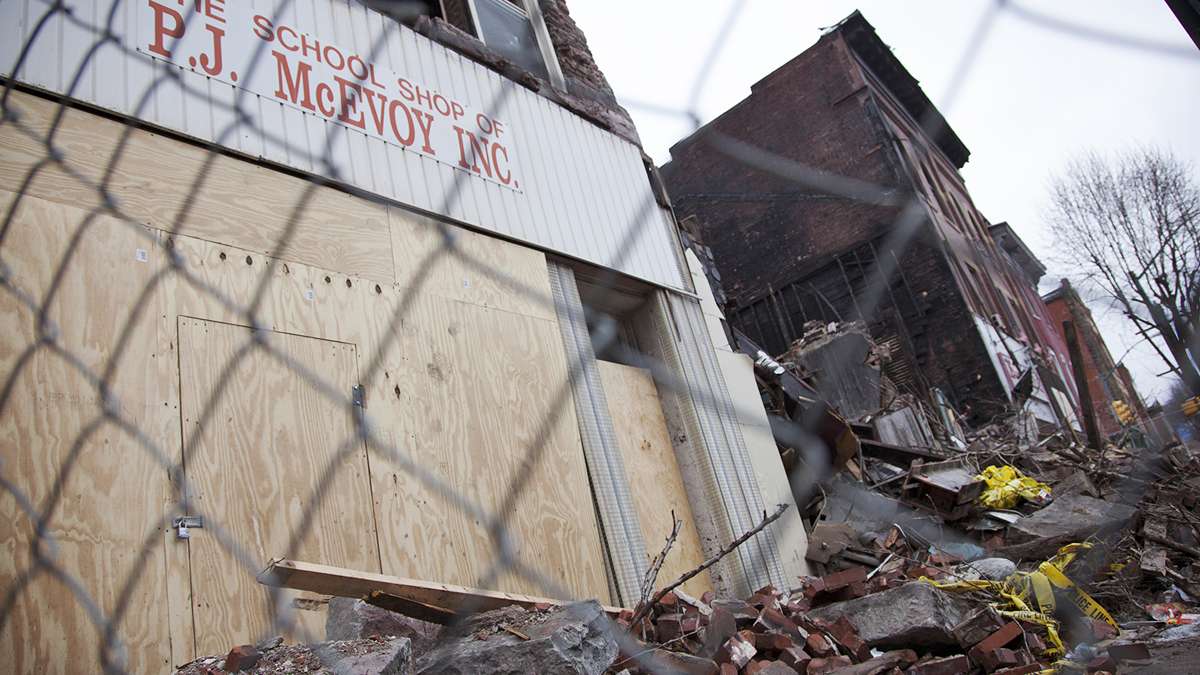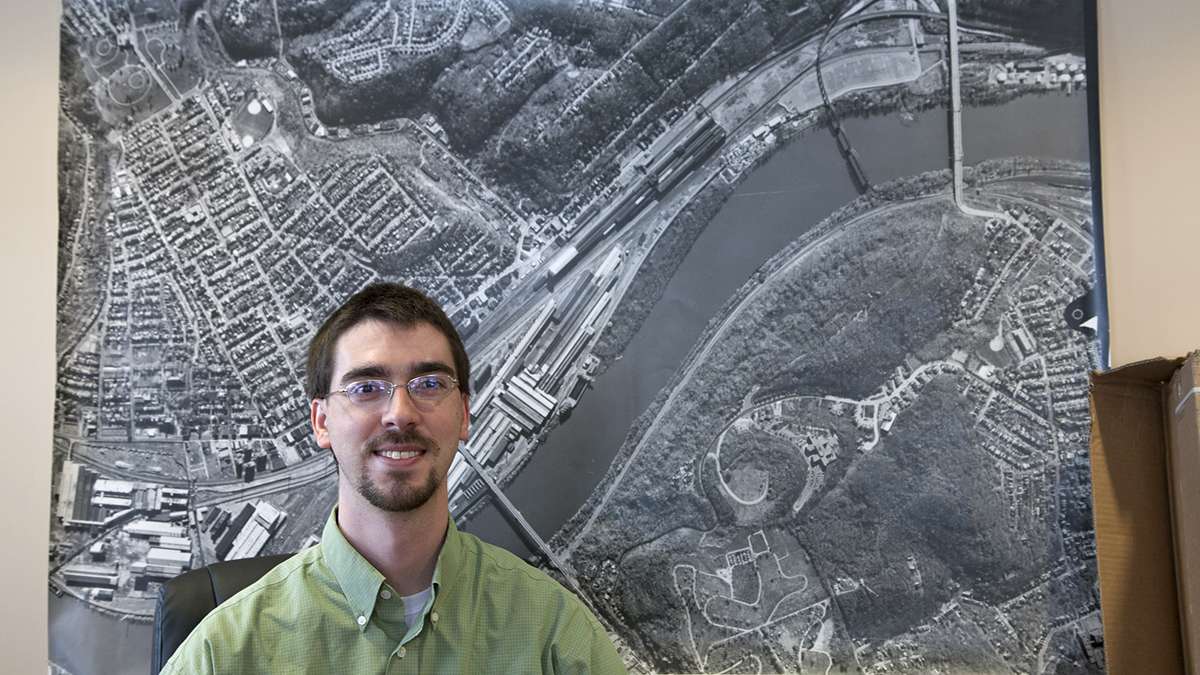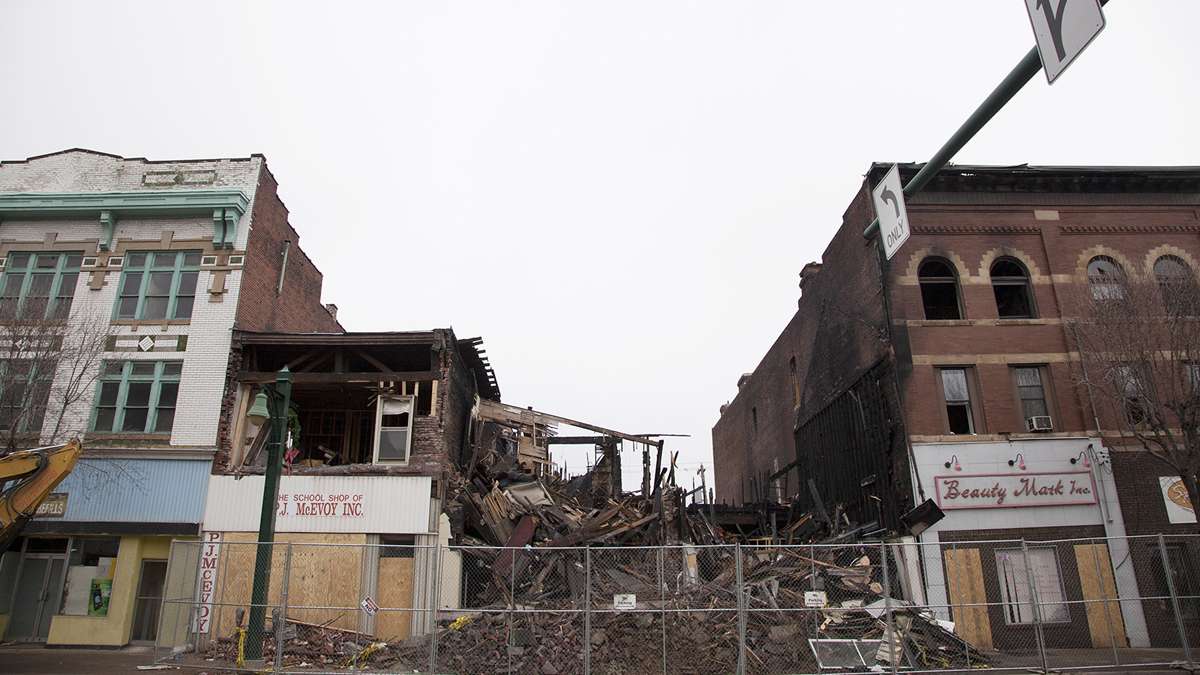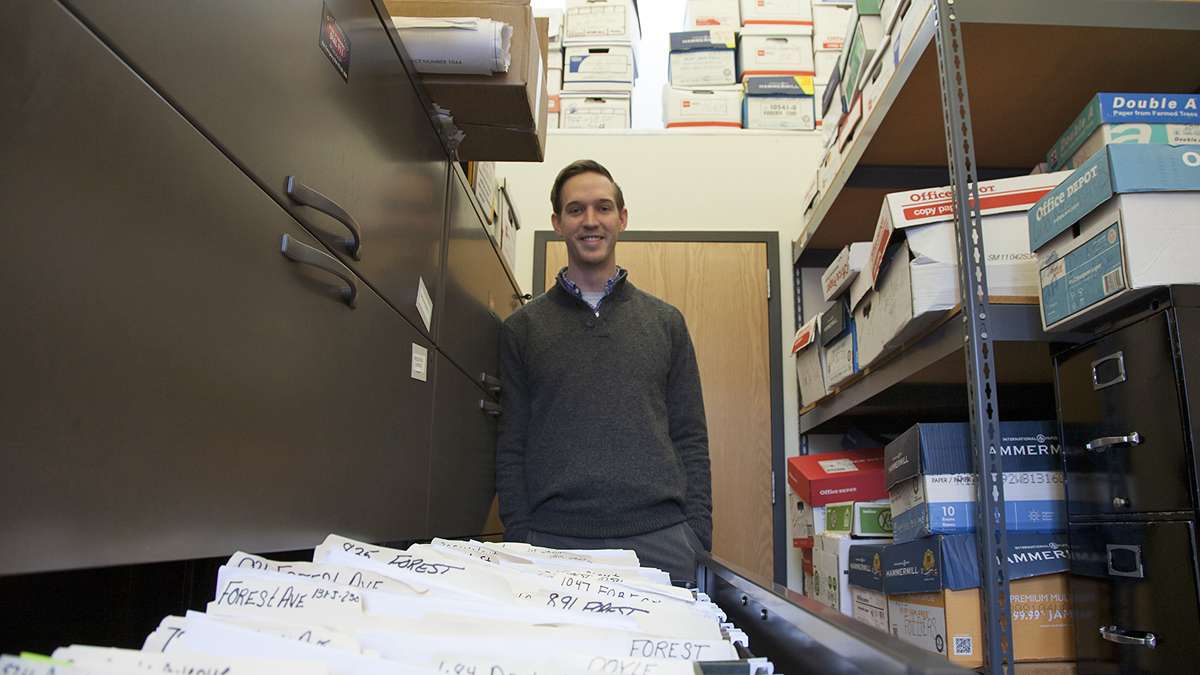Local governments lack modern technologies, affecting efficiency, budgets, and economic development
ListenMany governments are behind; some governments can’t find the money to update, while others lack the will.
When Ian McMeans became Homestead’s borough manager three years ago the borough had only one email address and the secretary printed the messages and hand delivered them to everyone. “That stopped very shortly thereafter,” said McMeans. Then McMeans built a website. But progress has been slow. The borough is still entirely paper-run.
McMeans recently toured a group of mostly-graduate government and administration students from the University of Pittsburgh around the borough. He took them to the site of a fire that still hasn’t been cleaned up. The blaze left behind a pile of charred debris spilling out on the sidewalk between still-standing buildings.
The students are helping Homestead go digital and McMeans said the incident was a good reminder for why their efforts matter.
“During the fire, we had to come back look through our paper records for the properties to see how many of the apartment units were occupied, how many people were living there, who the property owners were, or what their contact phone numbers were,” McMeans said.
It took employees about a half hour to thumb through the papers and figure all that out. Meanwhile, firefighters weren’t sure how many people to look for in the blaze.
Efficiency, innovation, and economic development
It’s not just a question of improving emergency services. Adel Ebeid, Philadelphia’s Chief Innovation Officer, said technology like tablets can benefit city employees like code inspectors and property assessors, as well. By improving efficiency in the field, “you’re clearly increasing productivity of that workforce,” Ebeid said. And then employees can focus on things beside rote bureaucracy, said McMeans.
Larger cities have created innovation offices to improve IT services as well as develop new ways to make government more mobile and open. In Philadelphia Ebeid is working to move data to the cloud, he consolidated thousands of employees across departments into one email system, there have been some open data initiatives, and the city has set up an Innovation Lab. In Pittsburgh, Debra Lam helped overhaul the city’s 311 system and is working on getting more services online.
“Traditionally we were backend and we were very reactive and responsive. Like, fix my computer, it is broken,” Lam said. “We should be at the front end.”
Providing better services to citizens is one outcome. The availability of open data – which, for example, can be turned by civic hackers into useful apps – is another. There’s also the potential to save big money. A state IT agency calculates that it has saved Pennsylvania millions through its initiatives. For example, just modernizing the state’s telecommunications saved taxpayers $27 million dollars, according to the agency.
And for old towns trying to attract young newcomers, an open, easy to use government is a must, said McMeans. He said some young people are moving in to Homestead and the borough wants to attract even more, and for them accessing services online is important.
“For the first time in some 50 years more people are moving into the cities and staying in cities as opposed to leaving for the suburbs,” said Alan Shark, with the Public Technology Institute. The Institute works with government executives on questions of technology in the public sector. “So that puts pressure on cities to make things inviting, which is Wi-Fi and broadband and really being tech savvy. That means really useful apps on our mobile devices that allow one to maybe look up different city functions…where you can report things such as a pothole or garbage not picked up or other problems with roads, or even crimes. The connected society, the connected city, go hand in hand and I think that’s very important for economic development.”
Still, McMeans said the hardest part is getting employees to get excited about change. In West Homestead, borough manager Kyle Thauvette said the region used to produce steel and for a century new technology in that industry meant fewer jobs, a fear that persists.
“The more electronic you make something the more the thought in the person’s head that’s doing something is I’m getting pushed out, this is all going to be done by the computer, and then what am I going to do?” he said. “The goal is showing them how this can assist them in completing your job and not making you as a person obsolete.”
No easy solution
Shark, with the Public Technology Institute, said many governments are behind, even ones with Chief Information Officers in place. He said some governments can’t find the money to update, while others lack the will. Whatever the reason, he said it will hurt them in the long run as “the amount of information that needs to be stored or digitized continues to grow and will get much worse.”
And there’s no easy solution for the tedious process of digitizing or other tech upgrades, he said. Governments, especially ones with limited funds, need to get creative. Hence the students.
After Homestead, the students drove to neighboring West Homestead Borough, which they’re also working with. Thauvette led them into what was once a break room in the municipal building. File cabinets and stacks of boxes crowded the space.
“If there were a way that we could search on the computer audits and pull it up without having to bring in public works with a ladder, climb Mt. Everest and take those down, that would save us a ton of time, therefore saving us a ton of money,” he said.
A company recently came out with tape measures to evaluate the stacks and quoted him nearly $30,000 to digitize the records. That’s the price of a police cruiser, said Thauvette. So for now, it will be the students helping the borough forge ahead into the 21st Century.
WHYY is your source for fact-based, in-depth journalism and information. As a nonprofit organization, we rely on financial support from readers like you. Please give today.






